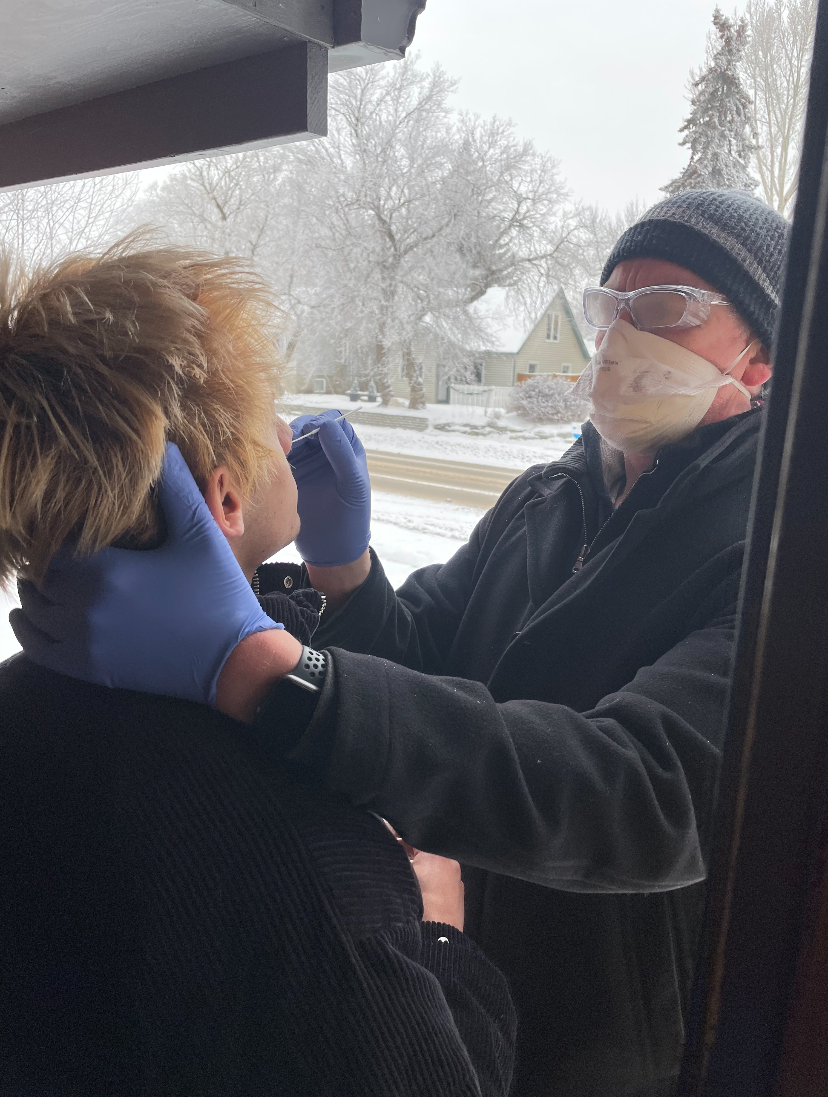Family physicians around Alberta have expressed serious concern about the province’s move to recommend self-reporting.

On December 23, Alberta health officials restricted access to PCR testing to conserve supply and reserve spaces for high-risk individuals.
There is a recommendation to rely on the ‘at home’ rapid tests. But that move, according to Dr. Mukarram Zaidi, stifles the true scope of the Omicron spread.
“AHS has the capacity to expand and do the PCR test,” Dr. Zaidi said.
“Patients are calling and trying to book appointments that are 7-8 days away. What’s the point when you’re sick today?”
On December 28, Alberta chief medical officer of health Dr. Deena Hinshaw advised Albertans who test positive for COVID-19 to use an at-home antigen rapid testing kit to notify their family doctors in order for the diagnosis to be kept on file.
Dr. Hinshaw added they wouldn’t be included in daily case counts. But there is a worry about the verification of the results.
“Somebody can take a picture of anybody’s test or from internet send it in now Dr. Hinshaw wants us to document that as a positive antigen test. It’s mind blowing,” Dr. Zaidi said.
“The fundamentals of this request is absurd.”

Get weekly health news
“The onus of the reporting should be on the government and not the individuals,” Dr. Zaidi said,
“It’s a huge medical dilemma for family physicians to be charting something that may or may not be true in our charts.”
Calgarian Anne Yates-Laberge said the changes are flawed. She said her family was potentially exposed to COVID-19 by a close contact, but because they’re asymptomatic they don’t qualify for AHS PCR testing.
“I need to make sure I’m not asymptomatic spreading this all over the place,” Yates-Laberge said.
Because of her work with vulnerable people she called 811 for guidance. She said the health worker instructed her to pay for a private PCR.
Instead, she asked her family doctor to do a house call to test the family.
“I feel like they’ve thrown the towel in and are contributing to this issue. It’s a bad example of government to be this negligent. All of a sudden they don’t want numbers so they won’t test — it makes no sense.”
Her physician Dr. David Keegan said they need to be done by an objective person in order to be verified.
“That’s one example of how health providers across Alberta are hacking the system and doing it appropriately but getting around things that could have and should have been predicted,” Dr. Keegan said.
He said concrete data is needed.
“We are going to get voicemails, emails and things dropped off and we need some order to this chaos,” Dr. Keegan said. “Then, if an insurance company comes we can say it was reported but we can’t verify at-home test results because we didn’t take it.”
NDP leader Rachel Notley said more needs to be done.
“Not only do many Albertans not have family doctors, also many family docs aren’t set up to administratively receive phone calls and keep these kinds of records,” Notley said. “The government needs to go back to the drawing board.”
Alberta Health spokesperson, Lisa Glover said self-reporting is a challenge being faced by many provinces.
“We currently recommend that people connect with their family doctor to discuss health implications of their diagnosis,” Glover said in a statement.
“We are looking at other provinces and working together to determine what solutions have been implemented in other jurisdictions that have moved earlier Omicron then we have had to. We hope to have an approach we can share with Albertans soon.”
Alberta Health is expected to provide a COVID-19 update on Tuesday.






Comments